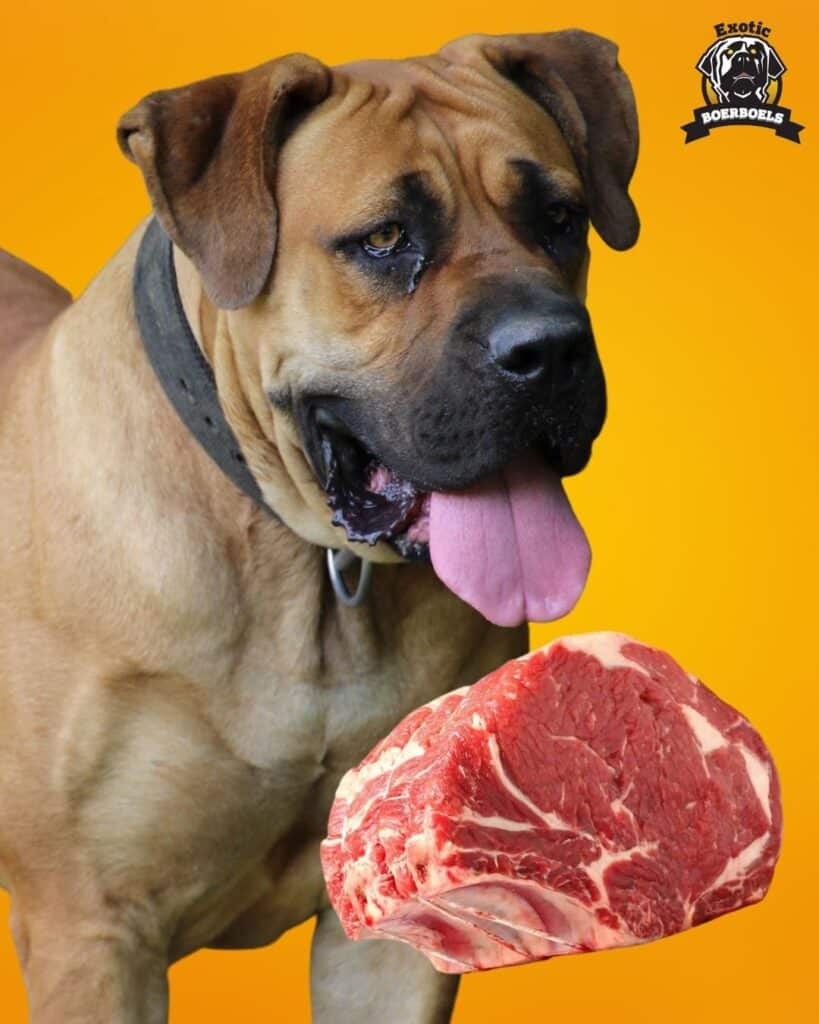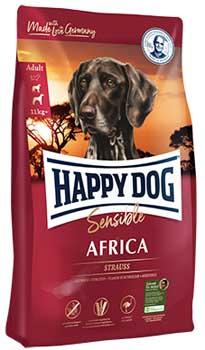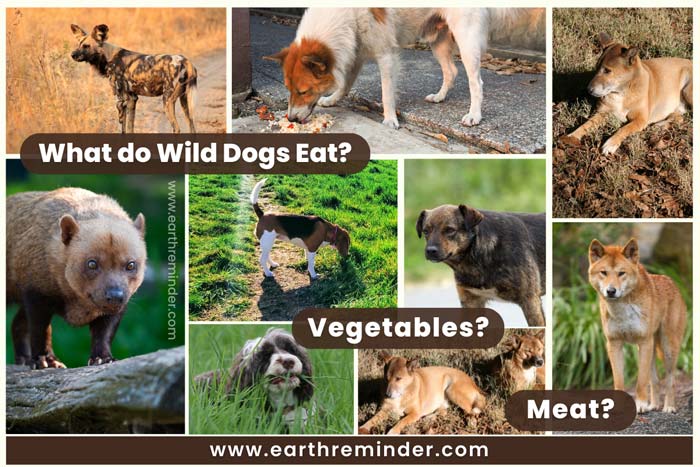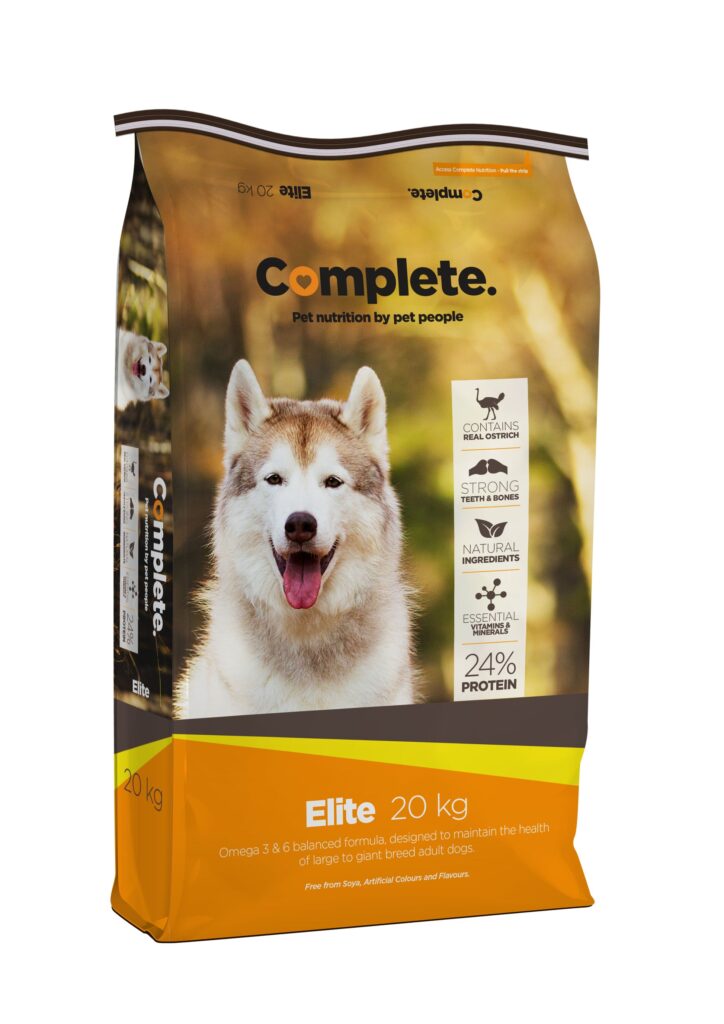Your cart is currently empty!
Best Foods For African Dog

If you’re a proud owner of an African dog, ensuring that they have a healthy and nutritious diet is essential. In this article, we will explore the best foods that you can provide for your African dog to keep them happy and thriving. From protein-rich meats to nutrient-packed grains, we’ve got you covered with a comprehensive guide to feeding your African dog the best possible diet. So, let’s dive into the world of canine nutrition and discover the top foods that will keep your four-legged friend wagging their tail with delight.
When it comes to nourishing your African dog, it’s important to understand their unique dietary needs. We’ll discuss the ideal protein sources that will fuel their energy, the essential vitamins and minerals they require for optimal health, and the importance of portion control to prevent weight gain. By the end of this article, you’ll be equipped with all the knowledge you need to provide your African dog with a well-balanced and nutritious diet that supports their overall well-being. So, let’s get started and ensure that your furry friend is eating the best foods for an African dog!

1. Healthy Protein Sources
African dogs require a diet rich in protein to support their active lifestyle and promote optimal health. Here are some healthy protein sources that you can include in your dog’s diet:
1.1 Chicken
Chicken is an excellent source of lean protein for African dogs. It is easily digestible and provides essential amino acids that are necessary for muscle development and repair. You can feed your dog boiled or grilled chicken, making sure to remove the skin and bones before serving.
1.2 Fish
Fish, especially salmon and sardines, are packed with omega-3 fatty acids, which play a crucial role in maintaining a healthy coat and skin in African dogs. Additionally, fish is a great source of lean protein and contains essential vitamins and minerals. It is recommended to steam or bake the fish and remove any small bones before feeding it to your dog.
1.3 Beef
Beef is a nutrient-rich protein source that provides essential amino acids for muscle growth and maintenance. When selecting beef for your African dog, opt for lean cuts such as sirloin or ground beef with low fat content. It is important to cook beef thoroughly to eliminate any potential bacteria or parasites.
1.4 Lamb
Lamb is a flavorful protein option that can add variety to your dog’s diet. It is rich in high-quality protein and offers essential vitamins and minerals. When preparing lamb for your African dog, trim off excess fat and cook it to an appropriate temperature to ensure safe consumption.
1.5 Eggs
Eggs are a complete protein source that contains all the essential amino acids required for a healthy dog. They are also an excellent source of vitamins and minerals, including vitamin A, vitamin D, and selenium. You can serve eggs boiled or scrambled without adding any seasonings or additives.
Including these healthy protein sources in your African dog’s diet will provide the necessary nutrients to support their growth, development, and overall well-being.
2. Nutritious Fruits and Vegetables
Adding a variety of fruits and vegetables to your dog’s diet can provide essential vitamins, minerals, and antioxidants. Here are some nutritious options to consider:
2.1 Sweet Potatoes
Sweet potatoes are a great source of fiber, vitamins, and minerals for your African dog. They are rich in vitamin A, which promotes healthy eyesight, and also contain antioxidants that support the immune system. You can steam, boil, or bake sweet potatoes and serve them plain, without any seasonings or additives.
2.2 Carrots
Carrots are a crunchy and low-calorie vegetable that is beneficial for your dog’s dental health. They are an excellent source of beta-carotene, which is converted into vitamin A in the body. Carrots can be served raw as a tasty treat or cooked and mashed for added versatility.
2.3 Spinach
Spinach is a leafy green vegetable that is packed with nutrients. It is rich in iron, which plays a crucial role in maintaining healthy blood cells in African dogs. However, it is important to note that spinach should be cooked before feeding it to your dog to break down oxalates, which can interfere with calcium absorption.
2.4 Blueberries
Blueberries are a superfood for dogs, providing a rich source of antioxidants that help combat oxidative stress and promote a healthy immune system. They are also a good source of fiber and vitamin C. You can serve fresh or frozen blueberries as a tasty and nutritious snack for your African dog.
2.5 Bananas
Bananas are a delicious and healthy fruit that can be included in your dog’s diet. They are an excellent source of potassium, which is essential for maintaining proper heart and muscle function. Bananas can be served as a treat or mashed and mixed with other ingredients to create homemade dog-friendly desserts.
Incorporating a variety of fruits and vegetables into your African dog’s diet will not only add nutritional value but also enhance the taste and texture of their meals.
3. Essential Grain Options
Grains can be an important source of energy and fiber in your African dog’s diet. Here are some essential grain options to consider:
3.1 Brown Rice
Brown rice is a whole grain that is easily digestible for dogs. It provides a good source of carbohydrates for energy and is also rich in fiber, which aids in digestion. Brown rice can be cooked and mixed with other ingredients to create a balanced meal for your African dog.
3.2 Oats
Oats are a nutritious grain that is high in fiber and low in fat. They provide slow-release energy and help regulate blood sugar levels. Oats can be cooked and served as part of your dog’s breakfast or mixed with other ingredients to create homemade treats.
3.3 Quinoa
Quinoa is a gluten-free grain that is considered a complete protein source, containing all essential amino acids. It is also rich in fiber, iron, and magnesium. Quinoa can be cooked and added to your African dog’s meals as a nutritious addition.
3.4 Millet
Millet is a small grain that is rich in antioxidants and essential minerals such as magnesium and phosphorus. It is easily digestible and provides a good source of energy for active African dogs. Millet can be cooked and served as a side dish or mixed with other ingredients to create a balanced meal.
3.5 Barley
Barley is a whole grain that offers a good source of fiber and important nutrients like selenium and manganese. It can aid in digestion and help regulate bowel movements. Barley can be cooked and added to your dog’s meals as a nutritious alternative to other grains.
Including these essential grain options in your African dog’s diet can provide a balanced source of carbohydrates and fiber to support their overall health and well-being.
| Grain Options | Benefits |
|---|---|
| Brown Rice | Easily digestible, provides carbohydrates and fiber |
| Oats | High in fiber, low in fat, regulates blood sugar levels |
| Quinoa | Gluten-free, complete protein source, rich in minerals |
| Millet | Rich in antioxidants and minerals, easily digestible |
| Barley | Good source of fiber, aids digestion, regulates bowel movements |
4. Beneficial Supplements
In addition to a balanced diet, certain supplements can provide added health benefits for your African dog. Here are some beneficial supplements to consider:
4.1 Fish Oil
Fish oil is a rich source of omega-3 fatty acids, which provide numerous health benefits for dogs. Omega-3 fatty acids support a healthy coat and skin, reduce inflammation, and promote joint health. You can add fish oil to your dog’s diet by mixing it with their food or giving them fish oil capsules.
4.2 Coconut Oil
Coconut oil is a natural supplement that offers a range of health benefits for dogs. It supports healthy digestion, improves skin and coat condition, and boosts the immune system. Coconut oil can be given orally or applied topically to your African dog’s skin and coat.
4.3 Turmeric
Turmeric is a spice that contains curcumin, a powerful antioxidant and anti-inflammatory compound. It can aid in reducing inflammation, promoting a healthy immune system, and supporting joint health in African dogs. You can add a small amount of turmeric to your dog’s food, ensuring it is properly diluted and mixed in.
4.4 Probiotics
Probiotics are beneficial bacteria that promote a healthy gut flora in African dogs. They can improve digestion, strengthen the immune system, and support overall gastrointestinal health. Probiotics come in various forms, such as powder or capsules, and can be easily added to your dog’s food.
4.5 Glucosamine
Glucosamine is a supplement that supports joint health and aids in the prevention of arthritis in African dogs. It helps maintain the integrity of cartilage and promotes joint mobility. Glucosamine supplements are available in chewable tablets or as a powder that can be mixed into your dog’s food.
While these beneficial supplements can enhance your African dog’s overall health, it is important to consult with your veterinarian before adding them to their diet to ensure the appropriate dosage and usage.

5. Homemade Dog Food Recipes
Preparing homemade dog food allows you to have complete control over the ingredients and quality of the food you feed your African dog. Here are some simple and nutritious recipes to try:
5.1 Chicken and Rice
Ingredients:
- 2 boneless, skinless chicken breasts
- 1 cup brown rice
- 1 cup chopped vegetables (carrots, peas, broccoli)
- Water for cooking
Instructions:
- Cook the chicken breasts thoroughly, making sure there are no pink areas in the meat. Remove any excess fat and dice into small pieces.
- Cook the brown rice according to the package instructions.
- In a separate pot, steam or boil the chopped vegetables until they are tender.
- Once all the ingredients are cooked, mix them together in a large bowl. Add water to achieve the desired consistency.
- Allow the mixture to cool before serving it to your African dog. Store any leftovers in an airtight container in the refrigerator.
5.2 Fish and Sweet Potato
Ingredients:
- 2 fish fillets (salmon or white fish)
- 2 sweet potatoes, peeled and diced
- 1 cup baby spinach leaves
- Water for cooking
Instructions:
- Cook the fish fillets by steaming or baking until they are fully cooked.
- In a separate pot, boil the diced sweet potatoes until they are soft and tender.
- Drain any excess water from the sweet potatoes and mash them using a fork or potato masher.
- Cook the baby spinach leaves by lightly steaming or sautéing them until wilted.
- Once all the ingredients are cooked, mix them together in a large bowl. Add water if necessary to achieve the desired consistency.
- Allow the mixture to cool before serving it to your African dog. Store any leftovers in an airtight container in the refrigerator.
5.3 Beef Stew with Vegetables
Ingredients:
- 1 pound ground beef
- 1 cup chopped vegetables (carrots, green beans, peas)
- 1 sweet potato, peeled and diced
- 2 cups beef broth
- 1 tablespoon olive oil
Instructions:
- Heat the olive oil in a pot and brown the ground beef until fully cooked. Drain any excess fat.
- Add the chopped vegetables and diced sweet potato to the pot and cook for a few minutes until slightly tender.
- Pour in the beef broth and bring the mixture to a boil. Reduce the heat and simmer for 20-30 minutes until the vegetables are soft.
- Allow the beef stew to cool before serving it to your African dog. Store any leftovers in an airtight container in the refrigerator.
5.4 Lamb and Brown Rice
Ingredients:
- 2 lamb chops
- 1 cup cooked brown rice
- 1 cup mixed vegetables (carrots, peas, green beans)
- Water for cooking
Instructions:
- Cook the lamb chops by grilling or baking until they are fully cooked. Remove any excess fat and dice into small pieces.
- In a separate pot, cook the brown rice according to the package instructions.
- Steam or boil the mixed vegetables until they are tender.
- Once all the ingredients are cooked, mix them together in a large bowl. Add water to reach the desired consistency.
- Allow the mixture to cool before serving it to your African dog. Store any leftovers in an airtight container in the refrigerator.
5.5 Egg and Vegetable Scramble
Ingredients:
- 2 eggs
- 1 cup mixed vegetables (spinach, bell peppers, mushrooms)
- 1 tablespoon coconut oil
Instructions:
- Heat the coconut oil in a pan over medium heat.
- Add the mixed vegetables and sauté until they are tender.
- In a separate bowl, whisk the eggs together.
- Pour the eggs into the pan with the sautéed vegetables and scramble until cooked through.
- Remove from heat and allow the egg and vegetable scramble to cool before serving it to your African dog. Store any leftovers in an airtight container in the refrigerator.
Preparing homemade dog food allows you to cater to your African dog’s specific dietary needs and preferences. It is important to ensure that the recipes you choose provide a balanced combination of protein, carbohydrates, and essential nutrients.
6. Considerations for African Dog Health
When providing the best foods for your African dog, it is important to consider their unique health needs and make appropriate adjustments. Here are some considerations to keep in mind:
6.1 Allergies and Food Sensitivities
Just like humans, African dogs can have allergies or food sensitivities. Common allergens for dogs include grains, certain proteins (such as chicken or beef), and dairy products. If you notice any signs of allergies or food sensitivities, such as itching, gastrointestinal upset, or excessive licking, consult with your veterinarian to determine the best course of action.
6.2 Portion Control
Maintaining an appropriate portion size is crucial for managing your African dog’s weight and overall health. The ideal amount of food will depend on factors such as age, activity level, and metabolism. Consult with your veterinarian to determine the appropriate portion size for your dog and adjust as needed to maintain a healthy weight.
6.3 Water Intake
Adequate water intake is essential for the overall health and well-being of your African dog. Make sure your dog has access to fresh and clean water at all times. Monitor their water intake, especially during hot weather or increased physical activity, to prevent dehydration.
6.4 Dental Health
Good dental hygiene is important for your African dog’s overall health. Regularly brushing their teeth and providing dental chews or toys can help prevent dental diseases such as tartar or gum inflammation. Consult with your veterinarian for recommendations on dental care products and practices for your specific dog.
6.5 Regular Veterinary Check-ups
Regular veterinary check-ups are vital for monitoring your African dog’s overall health and addressing any potential issues. Your veterinarian can assess your dog’s nutritional needs, perform necessary tests, and provide appropriate guidance to ensure your dog’s well-being. Schedule regular check-ups according to your veterinarian’s recommendations.
By considering these important aspects of your African dog’s health, you can ensure that their nutritional needs are met and that they enjoy a long and healthy life.

7. Foods to Avoid
While there are many nutritious foods that you can incorporate into your African dog’s diet, there are also some foods that should be avoided. Here are some common foods that can be harmful to dogs:
7.1 Chocolate
Chocolate contains theobromine, a substance that can be toxic to dogs. It can cause symptoms such as increased heart rate, vomiting, diarrhea, and even seizures. Keep all chocolate products out of reach of your African dog to prevent accidental ingestion.
7.2 Grapes and Raisins
Grapes and raisins can be toxic to dogs and can cause kidney failure. Even a small amount can be harmful, so it is best to avoid feeding them to your African dog altogether.
7.3 Onions and Garlic
Onions and garlic contain compounds that can damage a dog’s red blood cells, leading to anemia. Whether raw, cooked, or in powdered form, it is important to keep these ingredients away from your African dog’s food.
7.4 Avocado
Avocado contains a substance called persin, which can be toxic to dogs in large quantities. It can cause symptoms like vomiting, diarrhea, and pancreatitis. Keep avocados and any products containing avocado away from your African dog.
7.5 Caffeine
Caffeine can be extremely dangerous for dogs and can lead to symptoms such as restlessness, increased heart rate, tremors, and seizures. Avoid giving your African dog any caffeine-containing products, including coffee, tea, energy drinks, or chocolate.
It is important to be vigilant about the foods you feed your African dog and ensure they are safe and suitable for their consumption. If you suspect that your dog has ingested any toxic substances, contact your veterinarian immediately.
8. Importance of a Balanced Diet
Providing your African dog with a balanced diet is essential for their overall health and well-being. Here are some key reasons why a balanced diet is important:
8.1 Proper Nutrient Intake
A balanced diet ensures that your African dog receives all the necessary nutrients, including proteins, carbohydrates, fats, vitamins, and minerals. Each nutrient plays a specific role in your dog’s body, contributing to various functions such as growth, energy production, and immune system support.
8.2 Weight Management
Feeding your African dog a balanced diet helps maintain a healthy weight and prevents obesity. Obesity can lead to various health problems, including joint issues, heart disease, and diabetes. By providing the appropriate amount of food and monitoring their calorie intake, you can help your dog maintain an optimal weight.
8.3 Healthy Coat and Skin
A balanced diet that includes essential fatty acids, vitamins, and minerals promotes a healthy coat and skin for your African dog. These nutrients support proper skin cell function, reduce inflammation, and prevent dryness or dullness of the coat. A shiny and lustrous coat is a sign of good overall health.
8.4 Strong Immune System
A well-balanced diet helps support a strong immune system in African dogs. Adequate intake of essential nutrients, including vitamins A, C, and E, as well as antioxidants, helps strengthen the immune response and protect against common illnesses and infections.
8.5 Optimal Digestion
Providing a balanced diet that includes a variety of high-quality ingredients promotes optimal digestion in African dogs. Adequate fiber intake supports regular bowel movements and helps prevent gastrointestinal issues such as constipation or diarrhea. A healthy digestive system contributes to overall wellness and nutrient absorption.
By prioritizing a balanced diet for your African dog, you can ensure that they receive the necessary nutrients to support their growth, development, and overall health.

9. Transitioning to a New Diet
When transitioning your African dog to a new diet, it is important to introduce the new food gradually to avoid digestive upsets. Here are some tips for a smooth transition:
9.1 Gradual Change Process
Start by mixing a small amount of the new food with your dog’s current food. Gradually increase the proportion of the new food over the course of 7-10 days until your African dog is fully transitioned to the new diet. This gradual change process allows their digestive system to adjust to the new food without causing discomfort.
9.2 Monitoring for Digestive Upsets
During the transition period, closely monitor your African dog for any signs of digestive upset such as diarrhea, vomiting, or loss of appetite. If these symptoms occur, slow down the transition process and give your dog’s digestive system more time to adapt. If the symptoms persist, consult with your veterinarian.
9.3 Seeking Professional Guidance
If you are unsure about the best way to transition your African dog to a new diet, consult with your veterinarian or a professional canine nutritionist. They can provide personalized guidance based on your dog’s specific needs and help ensure a smooth transition.
9.4 Ensuring Sufficient Nutrients
When introducing a new diet, ensure that it provides all the necessary nutrients for your African dog’s health. Consider consulting with your veterinarian or a professional nutritionist to ensure that the new diet is nutritionally balanced and meets your dog’s specific requirements.
9.5 Patience and Observation
Transitioning to a new diet may take some time, and each dog is unique in how they adapt to change. Be patient and observant during the transition process, noting any changes in your African dog’s behavior, appetite, or digestion. Adjust the transition speed accordingly to ensure their comfort.
By following these guidelines, you can successfully transition your African dog to a new diet while minimizing any potential digestive upsets and ensuring their nutritional needs are met.
10. Conclusion
In conclusion, providing the best foods for your African dog plays a vital role in their overall health, energy levels, and longevity. Including healthy protein sources such as chicken, fish, beef, lamb, and eggs ensures a balanced diet rich in essential amino acids. Nutritious fruits and vegetables like sweet potatoes, carrots, spinach, blueberries, and bananas add vital vitamins and minerals to their meals. Essential grain options including brown rice, oats, quinoa, millet, and barley provide energy and fiber. Beneficial supplements like fish oil, coconut oil, turmeric, probiotics, and glucosamine can enhance your dog’s health. Homemade dog food recipes are a great way to ensure the quality and ingredients of their meals. Considerations for African dog health, including allergies, portion control, water intake, dental health, and regular veterinary check-ups, are key to overall well-being. Avoiding harmful foods such as chocolate, grapes, onions, garlic, and caffeine is crucial for their safety. A balanced diet promotes proper nutrient intake, weight management, healthy coat and skin, a strong immune system, and optimal digestion. When transitioning to a new diet, take it gradually, monitor for digestive upsets, seek professional guidance if needed, ensure sufficient nutrients, and practice patience and observation. By following these recommendations, you can provide the best foods for your African dog and contribute to a long and healthy life.
